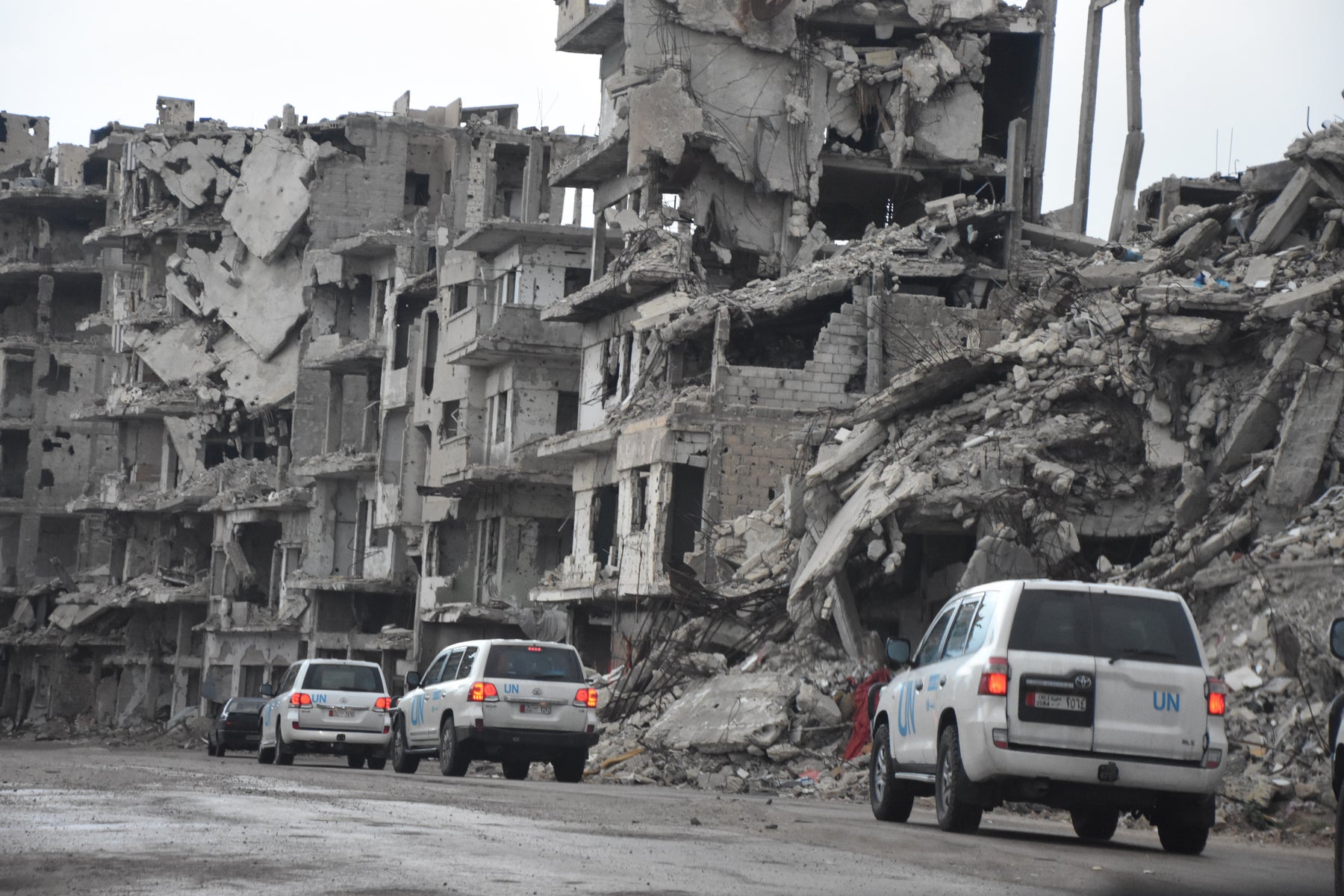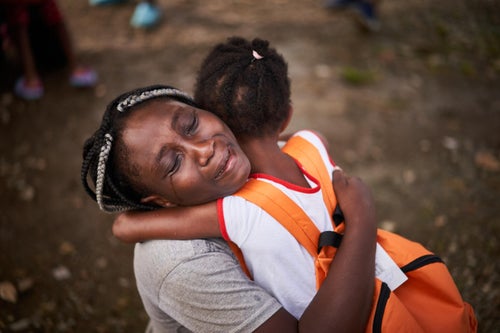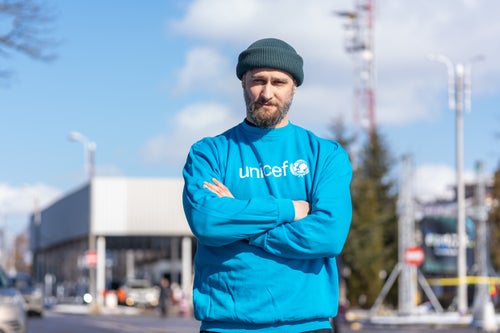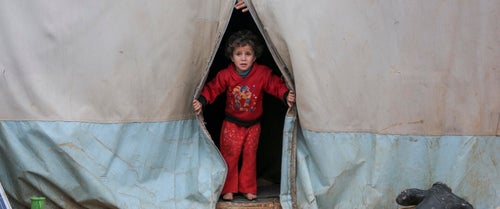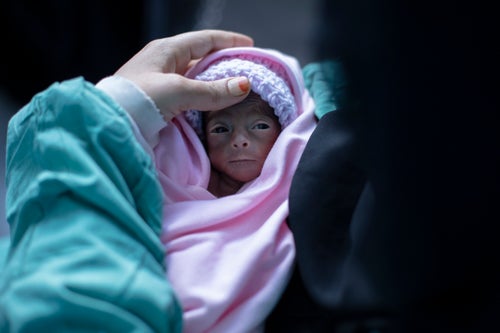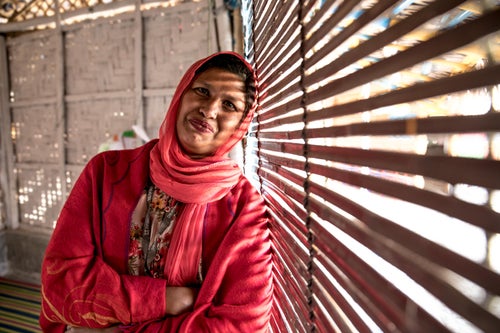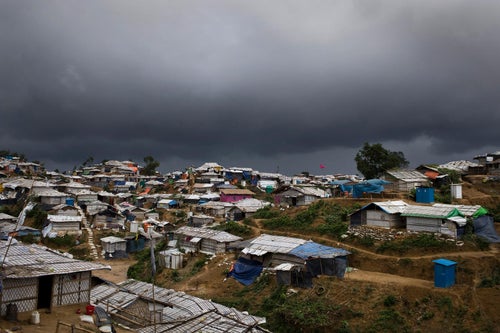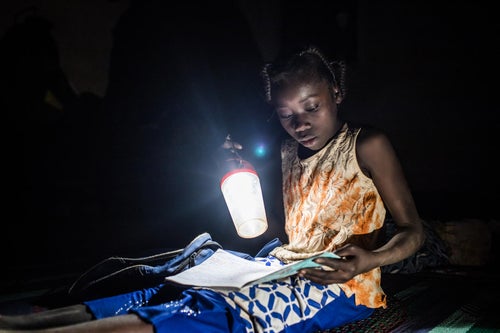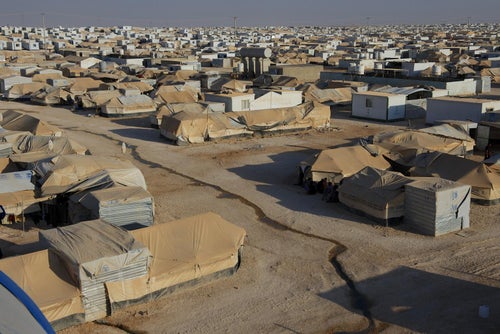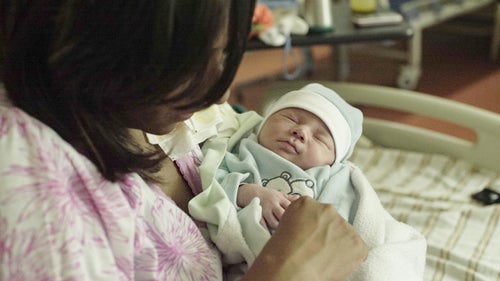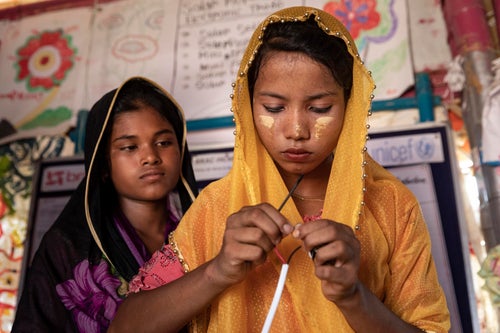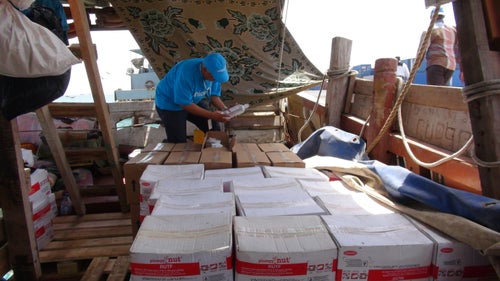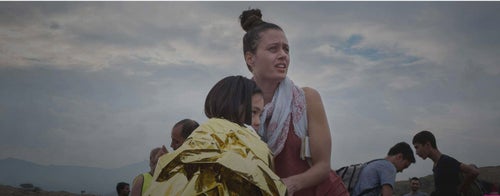Like most students in New Zealand, 17-year-old Radwan Loulou is celebrating the end of the school year. But just five years ago, Radwan was fleeing his school in Syria. He speaks to UNICEF about the day his town was attacked and the importance of sign language for his brother.
I was born in a small town on the Syrian coast called Baniyas. In summer it was very hot so I would spend a lot of time at the beach with my friends.
School was intimidating in Syria and I had to work really hard. My brother is deaf and we made up a special sign-language that nobody else knows. When the Syrian conflict began in 2011, I used sign language to let him know what was happening.
I will never forget the 2nd of May 2013, just before summer. Our town was attacked by militias and more than 30 children were killed, including three of my close friends.
The militias sealed off the eastern part of my town and no one was allowed in or out. The violence continued for days, and nowhere was safe.
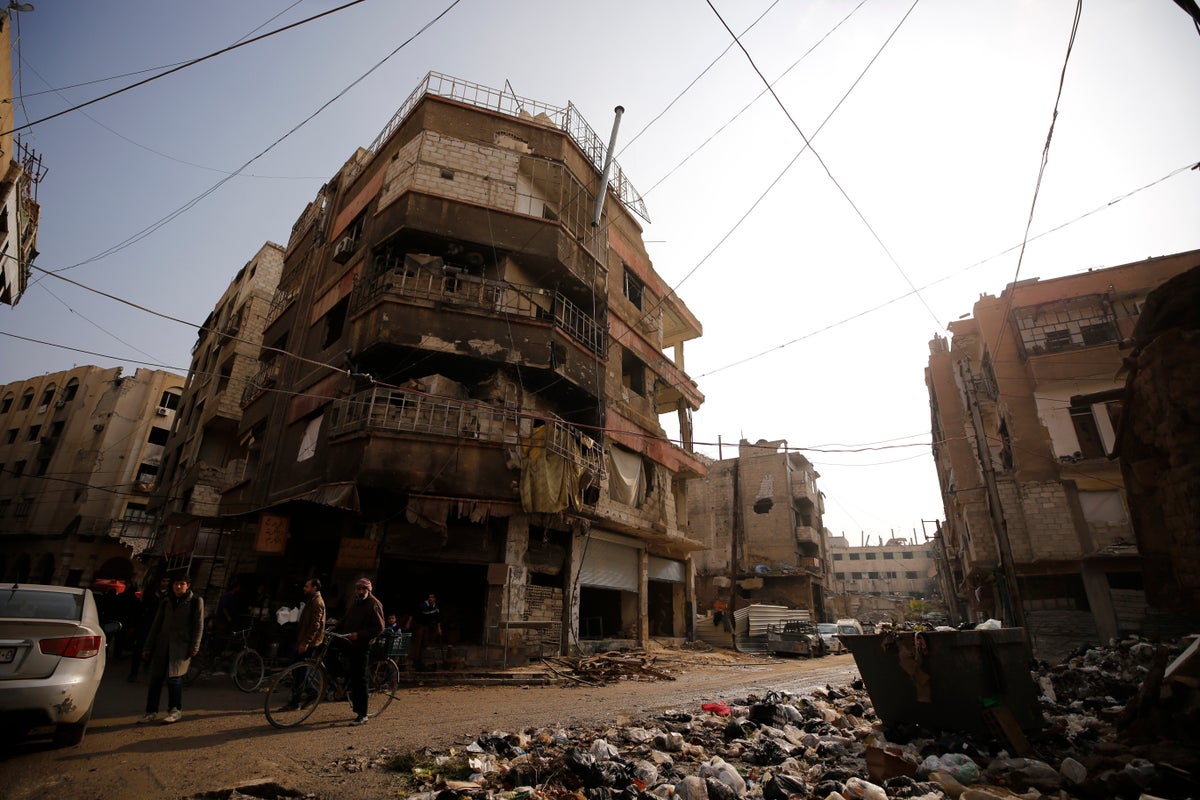
That meant we had to be quiet in our building, even though 27 people were crammed into one room. There were bullets in the walls and we couldn’t open the windows. There were bombings every ten seconds, just like the bombs you hear on TV. We couldn’t go outside.
I still remember the smell of the corpses.
After the massacre, I suffered from anxiety. I couldn’t stop looking at the photos of my friends I had lost. I couldn’t go to school. I couldn’t chase my dreams. My brother couldn’t go to his special-needs school anymore and I worried that if something happened to us, he wouldn’t be able to communicate with anyone.
One month later, we fled Syria. I was 13 years old. We flew to Egypt, leaving behind our friends, our school and the beach that I loved. Two years later, we found out that we were moving to New Zealand.
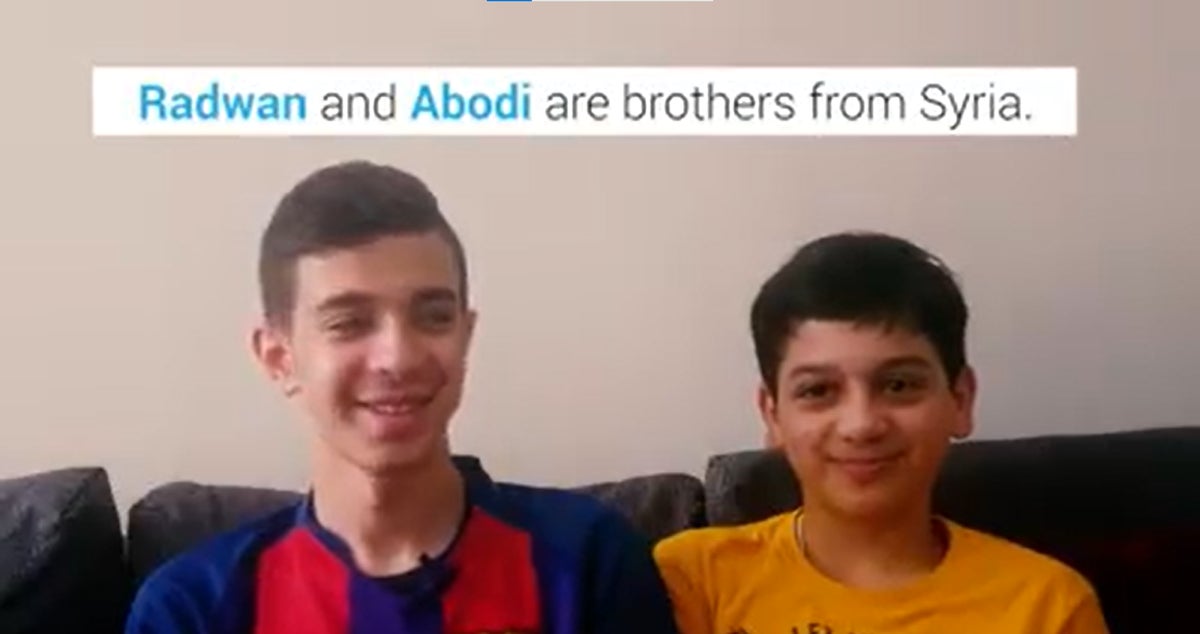
Radwan and Abodi
"I was concerned about his life in the future and when we are not around, what will happen to him?"
I have always been obsessed with geography and culture. Since I was six years old, I was determined to know every country in the world so I already knew a lot about New Zealand!
But, when we arrived at the Mangere Refugee Resettlement Centre I was astonished how different everything looked; the buildings, the weather and the people.
We now live in Lower Hutt, and I have friends from so many different cultures. I’ve learned to speak Spanish and I received a certificate of excellence from the Spanish Embassy!
When you are forced to flee your home and settle in a new country, you've got nothing but your family. I am so proud of my brother and sister and what my parents have done for us.
My brother loves his teacher aide at school and he’s learning NZ sign language. He loves maths and maybe one day he will be an engineer just like my father.
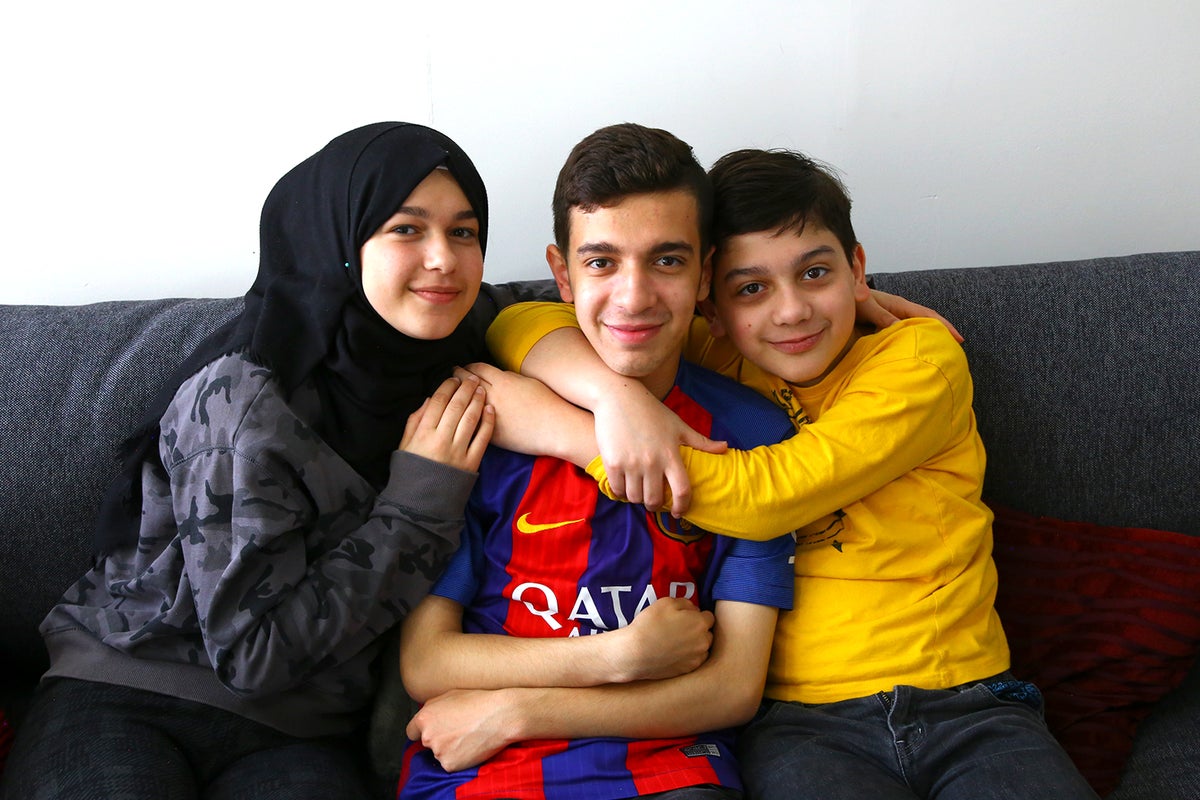
Before we came to New Zealand, my Mum used to cry a lot. She thought she would be isolated and she wouldn’t be able to make friends, but that’s not the case at all. We love our new country and the connections we have made.
I will never forget my hometown though. No child deserves to be a refugee but Syrian children have been surrounded by war for most of their lives, and I worry about the children still trapped there.
Over winter it snows in most of the cities in Syria. When you don't have electricity or central heating and you don't have a house, it’s hard to deal with the cold, especially when you are a child and you don’t understand what’s happening all around you.
I feel so privileged to be here in New Zealand. Few children get that opportunity.
""I just hope that those children back in Syria get the opportunity to live a life free from conflict and uncertainty.""
For more stories from NZ, visit unicef.org.nz
Related articles
Stay up-to-date on UNICEF's work in Australia and around the world



